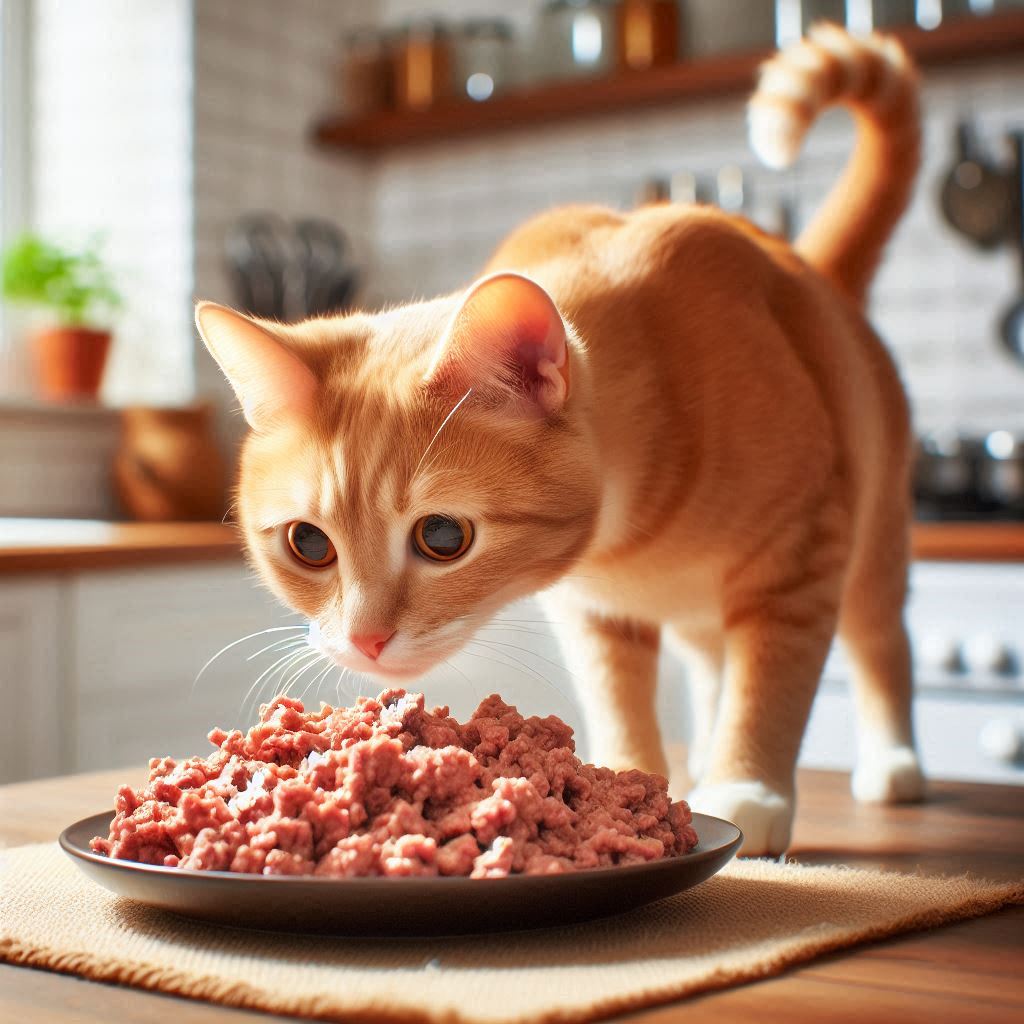Table of Contents
Introduction to Cats’ Dietary Needs
Can Cats Eat Spinach? Cats are obligate carnivores, meaning they primarily require nutrients from animal-based sources. Unlike omnivores or herbivores, their digestive systems are optimized for a meat-centric diet, deriving crucial nutrients like taurine, arachidonic acid, and vitamin A from animal tissues. But as pet owners become more curious about incorporating vegetables into their cats’ diets, one common question arises: Can cats eat spinach?
In this article, we explore whether spinach can be a safe and healthy option for cats, delve into its nutritional benefits and risks, and provide practical guidance on feeding spinach to your feline friend.
The Nutritional Composition of Spinach
Spinach is widely known as a nutritional powerhouse, rich in vitamins, minerals, and antioxidants. Cats eat spinach. A single serving of spinach contains high levels of:
- Vitamin A: Essential for vision and immune function.
- Vitamin K: Important for blood clotting.
- Iron: A vital component for blood health.
- Calcium: Supports bone health.
- Fiber: Promotes digestive health.
However, while these nutrients may seem beneficial, it’s essential to recognize how a cat’s body metabolizes them differently from humans.
Is Spinach Safe for Cats?
Spinach has its benefits, but it also has some drawbacks when it comes to feline consumption. Some experts argue that spinach can offer a boost of vitamins and fiber when given in moderation. The antioxidants in spinach can help combat oxidative stress, and the fiber can aid digestion. However, there’s a fine line between a beneficial addition and potential harm.
Spinach and Feline Urinary Health
One of the biggest concerns is the presence of oxalates in spinach. Oxalates are naturally occurring compounds that, when consumed in large amounts, can lead to the formation of calcium oxalate crystals in the urinary tract, potentially causing urinary blockages and other complications.
Risks Associated with Feeding Spinach to Cats
Oxalate Toxicity in Cats
Cats are particularly sensitive to oxalates, and too much spinach could lead to a buildup of these compounds, which may result in urinary issues, including the formation of kidney stones. This is especially risky for cats with a history of urinary tract infections or kidney disease.
Allergic Reactions and Digestive Upsets
Although relatively uncommon, some cats may exhibit allergic reactions to spinach. Symptoms could include vomiting, diarrhea, or excessive scratching. Always monitor your cat closely when introducing any new food, and consult with a veterinarian if any concerning symptoms arise.
Benefits of Spinach for Cats (If Fed in Moderation)
Despite the risks, spinach can offer some benefits when given in small quantities. The high levels of antioxidants, such as vitamins A and C, can help to neutralize free radicals and reduce inflammation. Additionally, the fiber content could aid in digestion, especially for cats prone to constipation.
How to Safely Introduce Spinach into a Cat’s Diet
If you decide to incorporate spinach into your cat’s diet, it’s essential to do so in a controlled and safe manner.
Preparing Spinach: Raw vs. Cooked
Cooked spinach is generally safer for cats than raw spinach. Cooking breaks down some of the oxalates, reducing the risk of toxicity. Always steam or lightly cook spinach without any seasoning, oils, or garlic, which are harmful to cats.
Portion Control and Frequency of Feeding
A small portion, no more than a teaspoon of cooked spinach, is sufficient. Spinach should only be fed occasionally and not as a regular part of a cat’s diet.
Alternatives to Spinach for Cats
If you’re unsure about spinach, several other leafy greens and vegetables are considered safer for cats:
- Zucchini: Low in oxalates and easy on the digestive system.
- Pumpkin: High in fiber, great for digestive health.
- Carrots: Packed with beta-carotene, beneficial for vision.
What to Do If Your Cat Eats Spinach Accidentally
If your cat accidentally consumes a large amount of spinach, monitor them for signs of discomfort such as vomiting, lethargy, or difficulty urinating. If any of these symptoms arise, seek immediate veterinary assistance.
Myths and Misconceptions About Cats and Spinach
A common myth is that since spinach is healthy for humans, it must be equally beneficial for cats. This isn’t necessarily true. Cats process nutrients differently, and what works for humans may not always be safe for felines.
Expert Opinions on Feeding Spinach to Cats
Many veterinarians caution against feeding cats spinach due to the risks associated with oxalates. However, if a cat has no underlying health conditions, a small, infrequent serving of cooked spinach can be safe.
Conclusion
While spinach can offer some health benefits for cats, it carries certain risks. If you choose to feed your cat spinach, it should be done sparingly, with careful attention to preparation and portion size. Always consult a veterinarian before introducing new food into your cat’s diet.
Frequently Asked Questions (FAQs)
Can cats eat raw spinach?
Raw spinach contains higher levels of oxalates, making it riskier for cats than cooked spinach.
How much spinach can a cat eat?
A teaspoon of cooked spinach, given occasionally, is usually safe for most cats.
Is cooked spinach safer for cats than raw spinach?
Yes, cooking reduces the oxalate content, making it a safer option.
What should I do if my cat has an allergic reaction to spinach?
Discontinue feeding immediately and consult your veterinarian for advice.
Are there any specific breeds that are more sensitive to spinach?
While no specific breed is more sensitive, cats with a history of urinary or kidney issues should avoid spinach altogether.
Can kittens eat spinach?
It’s best to avoid feeding kittens spinach as their digestive systems are more delicate.



